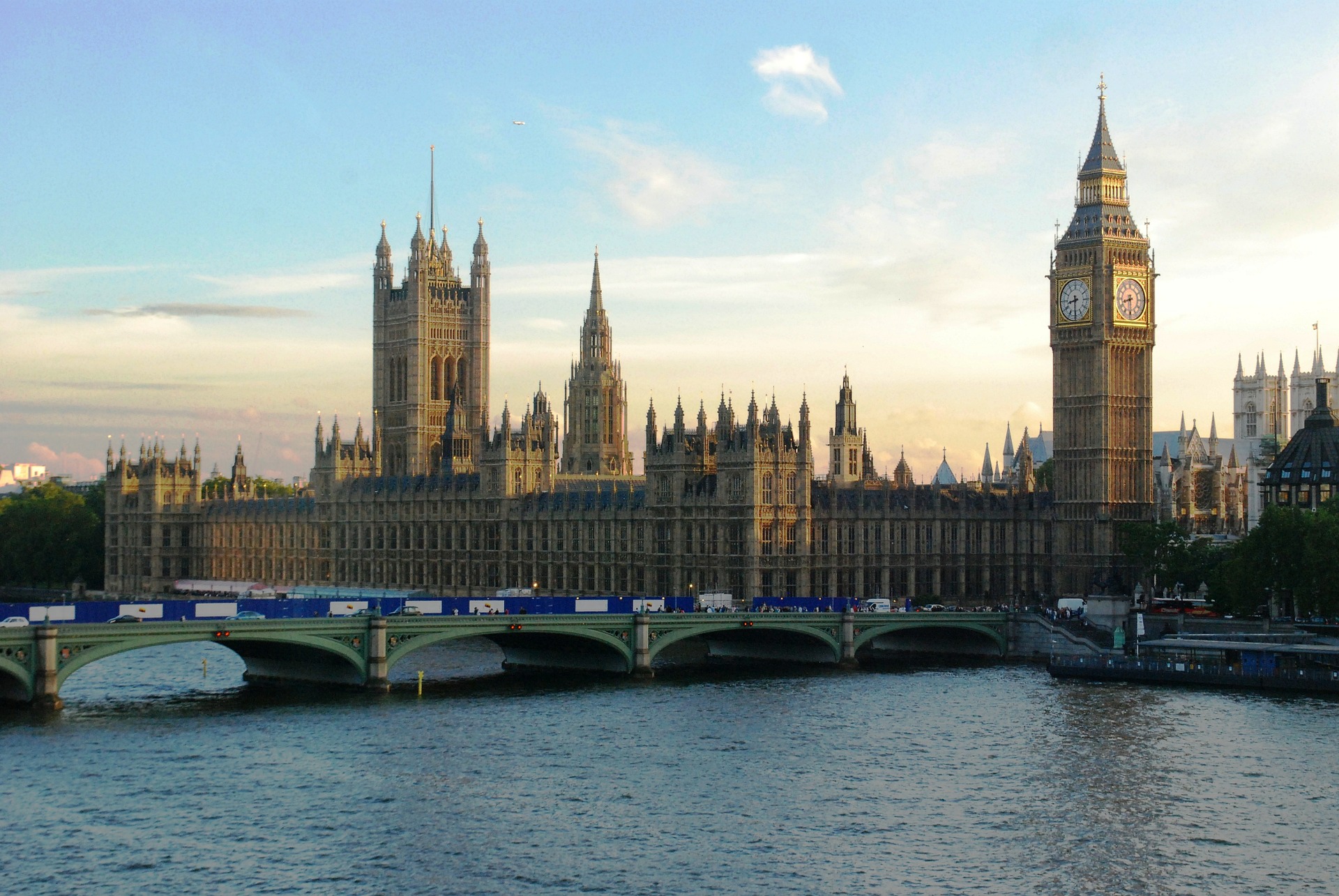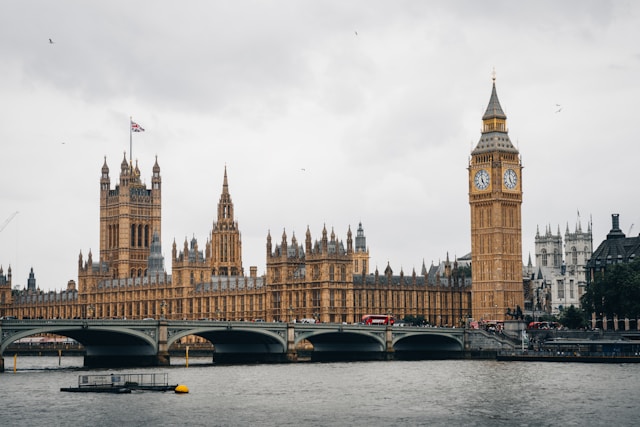
Clear the Lobby: What laws are MPs voting on this week? – w/c 28th Jan
January 28, 2019
Your Weekly Commercial Awareness Update – w/c 28th January
February 1, 2019Your round-up of the stories that you should discuss at interview this week:
[section title= “Criminal Justice”]
Reported by Paige Waters
Could Northern Ireland’s Abortion Law be Changing?
Northern Ireland’s abortion law has already raised debates and concerns with the demand it need to be reformed. This may now be happening.
A landmark case, launched by Sarah Ewart, could find their abortion law in breach of the European Convention on Human Rights.
Ewart was pregnant and at only 19 weeks she found out her baby was carrying a fatal defect, denoting the brain and skull had not developed properly. All doctors refused to perform an abortion citing the near-blanket bad on terminations.
It has been said one consultant ‘slammed’ her files on the desk and said: “I’m not going to prison for anyone.”
This led to Ewart having to borrow money to travel to England for an abortion. Following her return, she lobbied Northern Ireland’s politicians to lift the ban but this fell on deaf ears.
Ewart has released a statement, she said: “time and time again, I’ve told my story to MPs, courtrooms and judges. Each time I relive the trauma. I hope this will be the last time I have to go to court and prove that women like me should be able to access abortion services at home, without being forced to travel. I hope this case can bring a ruling that helps end suffering for us all.
Ewart has been fighting for the abortion ban to be lifted and the law to be reformed for five years.
The UK’s Supreme Court ruled last year the abortion ban breached human rights legislation. However, it was held they did not have the power to bring forward proceedings because it was not a victim of an unlawful act. Therefore, Ewart has brought an individual case to the high court in hope of securing a formal declaration that NI is violating the ECHR.
The Guardian has more information.
[/section]
[section title= “Politics”]
Reported by Zara Smith
Trialling Proxy Voters
The commons are now in discussion of implementing a year long trial of proxy voting. This would mean that when an MP is on maternity/paternity leave, they can send a nominated person in to vote on their behalf.
MP’s have said the system as it is now can leave them feeling as though their parental responsibilities are not as important as their parliamentary responsibilities. One MP, Tulip Siddiq delayed giving birth to attend the Brexit-deal vote.
There is a lot of consensus in the Commons, especially by women, that the proxy voting would be a useful method. It is hoped this positivity is reflected in the upcoming vote.
The trial proxy period has been well thought out; schemes are ready to be put in place to allow for an immediate start to the new proxy voting trial. MP’s would be able to apply immediately to nominate a proxy.
The East Dunbartonshire MP stated: “We have waited long enough for his change. Modernising the House of Commons is a slow and laborious process – frankly its often quite like child birth – so let’s get on with it”.
The request for this trial period was accelerated by a recent article in the Times which suggested Julian Smith, the chief whip, was trying to obstruct the progressions of the voting system that would help those MPs on maternity / paternity leave. It has been noted that he has not made any progressive change on the idea in the past 6 months.
In times like this, where the MP’s are a crucial part in the navigation of Brexit deals, it would be beneficial for those who require it to be able to still have their vote counted.
For more information read here and here.
[/section]
[section title= “Policing”]
Reported by Emma Ducroix
Possible ethnic disproportions concerning techniques used by the Metropolitan Police to control citizens
According to official figures from the London Mayor’s Office for Policing and Crime, the Metropolitan Police is using non-ethically stop and search powers methods on a majority of black people. A study shown that the black population was more targeted than the white population with a 19% rising use of controls.
Nonetheless, the thing is that stop and search carried out by the police on the black population does not bear its fruits. Indeed, black people are less likely linked to crime than white people and searches shows it clearly, most stops found no wrongdoing.
With a minority of black person in the London’s population contrary to the whites, the situation seems to cause ethnic and moral problems. This situation is « disproportionate » according to the MOPAC, black people are more than four times stopped than white people.
This is why a black police leader accused the Metropolitan police of racial profiling and even the MP David Lammy warned the police of unfairly targeting black people.
And to make things worse, the Met decided to defend itself saying “ethnics groups are more suspicious to be knife attackers than whites and violence affects areas with a more ethnically diverse population.”
That situation created a controversy. Then, a non-confidence in policing from the black communities emerged.
Another problem came from the department of the police: this one suffers from pressure in order to increase the use of stop and search as violent crime, street violence and related drug crime raise.
But the Met police is aware better than anyone and said that:”Crime is not proportionate and the root causes are complex. Knife crime and street violence disproportionately affects boys and young men, particularly of African-Caribbean heritage both in terms of victims and perpetrators.”
“We must focus our efforts … in the areas requiring our support and intervention to stop more young people being injured, dying or damaging their lives by committing serious offences.”
For the most part, 16% of stop and searches have led to an arrest and it has shown that arrest were lower for the black community.
Moreover, “Positive outcomes” when an offence is suspected , were higher for white people than black. These led to sanctions such as cautions or community resolution and arrest.
A racial effectiveness gap in the searches by the Met had been noticed. Datas demonstrate that the police is less likely to detect criminality when they stop white people because they are less suspicious, so, in a way, they tend to be less careful when a stop and search happens with a white person.
The Met declared that there was over 4,200 weapons were taken off the streets last year as a direct result of stop and searches.
Sgt Tola Munro, the president of the National Black Police Association, thoughts that this is not an excuse to suggest that weapons or drugs are more likely to be found on black people.
And even if it was the case that does not excuse this dis-proportionality – it’s not unconscious, it’s systemic racial profiling, according to him.
Katrina Ffrench of StopWatch said: “Police forces that persistently discriminate against black and ethnic groups should face sanctions and officers found to be misusing or abusing their stop and search powers should not be permitted to use them.”
The Met answered: “Stop and search is an effective preventative measure. In utilising the tactic consistently in an evidenced based manner in relation to specific crime types, we believe this can also significantly deter criminality.”
We can suppose by this statement that the Met is going to take new measures to exercise stop and search in a coherent manner.
For more info, see here.
[/section]
Get these updates straight to your inbox every week by signing up here or if you are an existing member, ensure you receive these emails by changing your preferences here.




